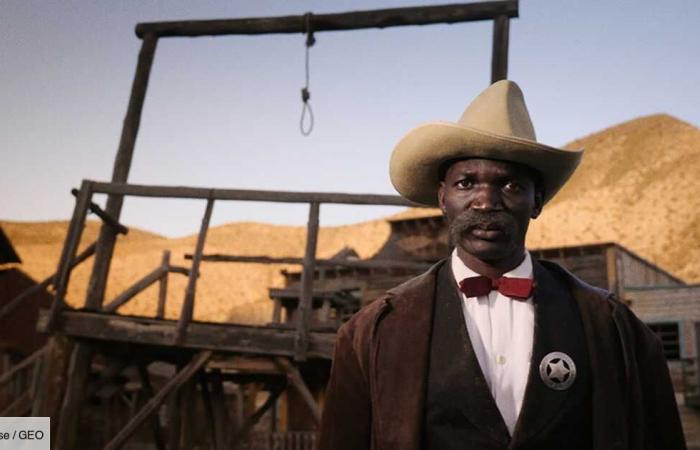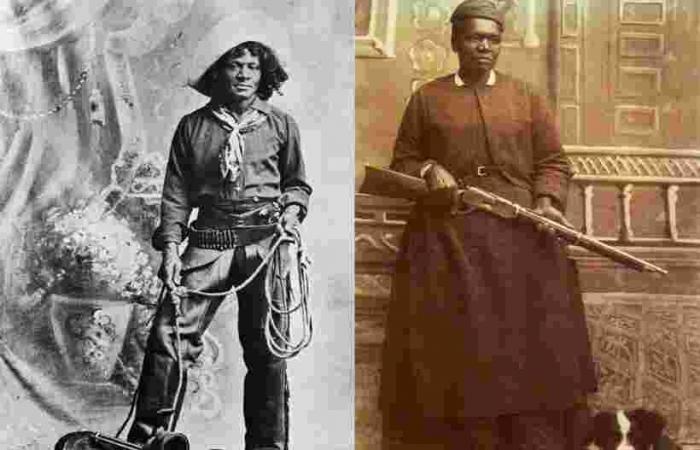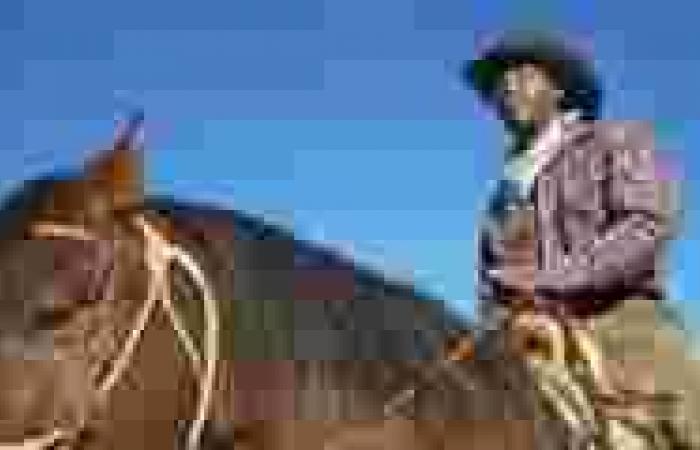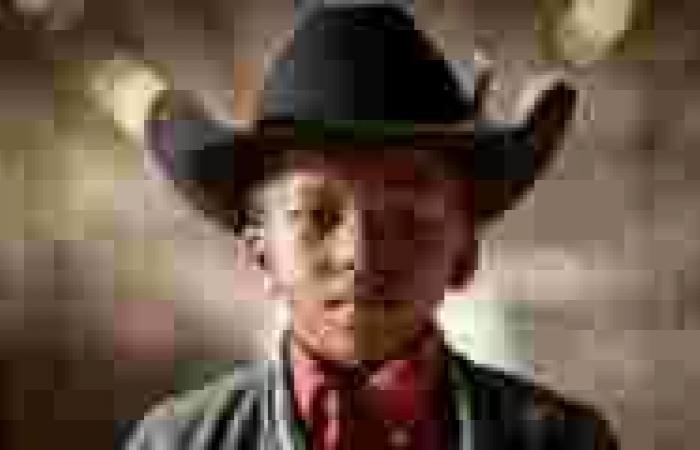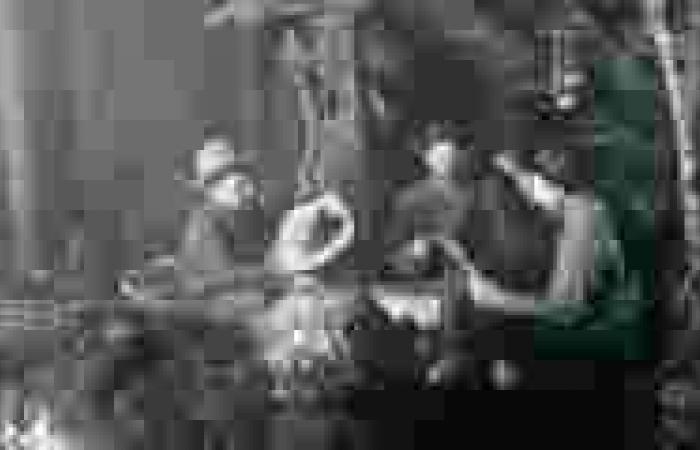If someone talks to you about a cowboy, what do you imagine? A Clint Eastwood with a hat on his head and a cigar in his mouth? A John Wayne sheriff’s star on his chest and gun in hand? Or a Lucky Luke accompanied by his faithful Jolly Jumper? When it comes to the Wild West, our minds don’t lack imagination. Except that these characters all have one thing in common that obscures part of the story: they are white.
In 1875, however, one in four cowboys was black. And tens of thousands of African-Americans participated both in the Civil War and in the conquest of the West, sometimes experiencing exceptional destinies. Like Britton Johnson, a former captive who left in the 1860s in search of his family kidnapped by Comanches. Unknown to the battalion? Not totally, it was his story that inspired John Wayne’s (white) character in the film The prisoner of the desert by John Ford.
Britton Johnson isn’t the only black man in the Wild West whose story has fallen into oblivion or slipped into the guise of a white hero. That’s what the documentary tells “Black Far West – A Counter-History of the West” directed by Cécile Denjean which will be broadcast on October 15 on the Arte channel. Through archives, testimonies of historians and the stories of the characters themselves, the film strives to restore the truth on the place of Afro -Americans in the Wild West Landscape.
⋙ 9 misconceptions about the Wild West, cowboys and Indians
We thus meet Nat Love, a former slave who became a cowboy, James Beckwourth, another captive turned trapper, Bass Reeves, freedman promoted to deputy sheriff or even Mary Fields, hired as a long-distance letter carrier. The documentary also exposes how the Wild West was a brief bubble of freedom for African Americans after centuries of slavery and before the establishment of the policy of racial segregation.
Telling the story from another point of view, modifying the common imagination, giving back their voice to unjustly erased figures, this is what director Cécile Denjean tried to do, speaking to GEO.fr a few days before the first broadcast.
GEO.fr: How did the idea for such a film come about?
Cécile Denjean: When you make films, it’s often one film that will generate the next. In this case, I was making a film about virility (Manliness, released in 2019, editor’s note). I did a lot of interviews with men of all ages and there was really this cowboy figure that kept coming back. The figure of John Wayne, by Clint Eastwood, “that’s what being a manly man is“. I was a little surprised and it made me want to make a western, to immerse myself in this universe. There is really an imaginary in there which is little questioned today. I was interested in that and I discovered a completely different story. I said to myself it’s crazy that we don’t know this story. It’s as if I had discovered the pot of roses.
That’s to say ?
In my own imagination, there was slavery, Gone with the wind, that sort of thing… And there were cowboys on the other side, always white obviously. I realized that it all corresponded to the same moment, the same era, the same story… But this story was never told like that, from that point of view. We have snippets but nothing is connected. What I find crazy is that the United States was built on this mythical figure of the cowboy, of the courageous man, who has a sense of justice, of freedom… When you really look in the history, we understand that the cowboys were actually poor guys. A quarter of them were black, there were also Latinos but they were really poor men (whose primary function was to take care of cattle, editor’s note). Besides, the word “boy” means “boy” in English. Historians think it was a kind of condescending way of naming cowboys, not giving them the title of man. It’s crazy that what best symbolizes this myth of the Wild West and the freedom associated with it is in fact deeply a story of slavery and deprivation of freedom. The United States has contrived to turn this reality around and make it into something false.
In the documentary, we discover in particular that certain fictional cowboys played by white actors are inspired by people who really existed but who are black. How to explain such a reinterpretation?
For years and years, in the United States, it was just absolutely out of the question to have a hero who was black. An African American couldn’t be a hero, couldn’t be the hero. But there was also something more insidious in a way, which was to say to yourself “if we put a black man as the hero, no one will go to see the film“. From a commercial point of view, it was a way of devaluing the story. When John Wayne plays Britton Johnson, for example, I’m not even sure that he himself had knowledge of the real character. He It doesn’t even need a conspiracy because at that time, the world view in Hollywood just couldn’t see that equality. That’s what’s crazy. In the United States, at one time, it was the story of a drop of blood. Even if you were mixed race, you were considered black and inferior. When in reality when you look at the faces, it is not clear what is flowing in the blood. Weathered faces, full of dust, I think that was the Wild West. When you had spent three weeks in the dust without washing, did the color of your skin still matter? Not sure. That’s it. what the film tries to tell: when you go through things that are so strong, that it’s a question of life and death, finally the color of skin doesn’t matter.
When you started your research, was there already work on this question of the place of African-Americans in the Far West?
Sure. In reality, historians have been working on it since we started to be interested in the Wild West almost. I found specialists who wrote books from the 80s and 90s. But they just weren’t listened to. I think it took Black Lives Matter (movement that militates against systemic racism against blacks, editor’s note) and a whole lot of awareness so that we find the place to say that. In the film, there is a historian who says “each generation must rewrite its own history“. I think that’s really what’s happening. Fortunately, I’m far from the only one bringing this issue to light, there is more and more about slavery, etc. But what was really interesting here is that the subject touches on the imaginary. When we have an imaginary that forbids seeing a hero in a being who is not white, we have This is where documentaries come in handy.
Your film presents a whole collection of characters to illustrate the importance that African Americans had in the Wild West. How did you choose them?
That made up the super interesting game of this film. I assumed that these people were forgotten because they were deemed unworthy of history. Some of them have however written things, we write letters, even books. This is the case of Nat Love, the cowboy turned rodeo champion, who wrote the story of his life. I told myself that we were going to give him a voice, that we were going to hear his own text, that we were going to bring it back to life since it was erased. So I really favored those who had written things to have their own version. For me, it was a way of repairing this injustice. I didn’t want it to be someone else telling their story for them. They’ve been silenced, so it’s time to give them back their story. There’s Henry Bibb, who was a slave in the hands of a Cherokee chief who has quite special experience and who tells the story really well, I think, there’s Nat Love the cowboy and James Beckwourth the trapper. Bass Reeves didn’t write to him, he was illiterate. But I thought he was an extraordinary character. And we have a lot of documentation on him so we were able to reconstruct a lot of things and give a fairly close idea.
There is also Mary Fields who had an exceptional destiny…
Yes, I obviously wanted there to be a woman in this film because it would have been terrible to put African Americans in it but not women. Mary Fields is an extraordinary person. And his example is interesting because he really embodies the difficulty with all these characters. The traces available on it are very ambiguous. Some say things, others say it’s wrong. It’s hard to determine the reality because they were such extraordinary people. They gave rise to many fantasies and untruths. I think I managed to make sense of things in the film. We tell the real Mary Fields as she was. I really wanted to give voice to these forgotten people but also to constitute a kind of realistic mirror of the globality. That is to say, there were extraordinary characters like Mary Fields, this stagecoach driver, or Bass Reeves, the sheriff, and then there were also very ordinary people like soldiers, peasants who s came out of it by planting a little sorghum in land not made for it. There was everything in that era. I really tried to mix the extraordinary characters and the very ordinary people.
The conquest of the West may have been a bygone era for more than a century, but earlier you made a link with the Black Lives Matter movement and current awareness. Why is it important today to tell this little-known story of the Wild West?
At that time, it was very complex to be black in the United States as it is still today. The film’s historical adviser, Art Burton, told me that he still had no place in the United States and that he did not recognize himself in all these films which tell of this historical period of which he is nevertheless a specialist. I believe there is a great expectation from the black community to say “we have an identity, a history, we exist“, to be recognized. Even today, many black people, even in France, feel completely spoiled by this story. Fiction has broken things up a lot. So it’s good, I love it, it’s fiction, but for a moment you need to make connections between things in order to understand. That’s why I think it’s important to make committed films. We’re at a time when you have to say the things that we need to hear. And I think we have to work on the imagination: modify our imagination, open it up, nourish it, bring sensitivity. All that is us, it’s our story, we don’t There’s no need to separate, blacks on one side, whites on the other. So there’s a real urgency to make films that are committed, that restore truths.
➤ The documentary “Black Far West – A counter-history of the West” directed by Cécile Denjean will be broadcast on the Arte channel on Saturday October 15, 2022 at 8:50 p.m. It is also available on the Arte.tv platform from October 8 to December 13, 2022.
Read also :
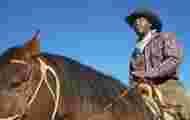
Conquest of the West: “About half the cowboys were people of color”
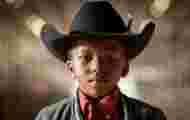
United States: who are the black cowboys of Mississippi?
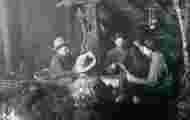
African-Americans, Jews, Irish… Minorities in the Far West
Tags: Black West documentary brings oblivion place AfricanAmericans conquest West

